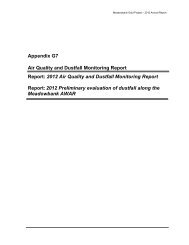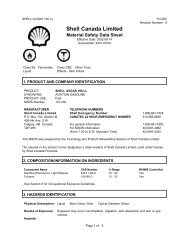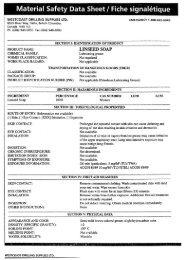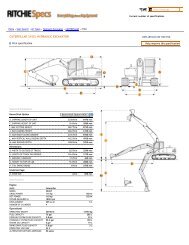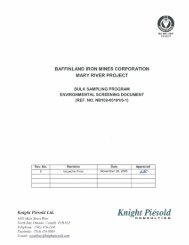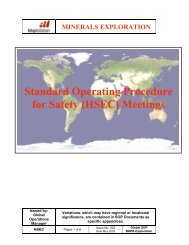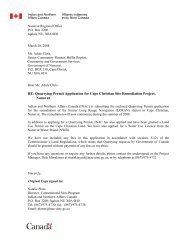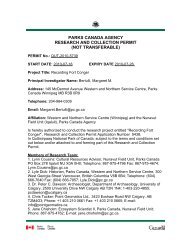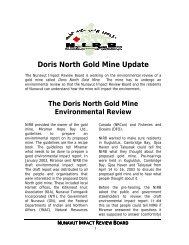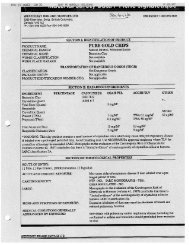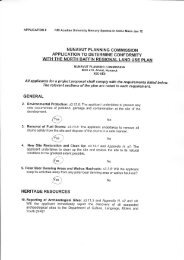REGULAR UNLEADED GASOLINE
REGULAR UNLEADED GASOLINE
REGULAR UNLEADED GASOLINE
Create successful ePaper yourself
Turn your PDF publications into a flip-book with our unique Google optimized e-Paper software.
<strong>REGULAR</strong> <strong>UNLEADED</strong> <strong>GASOLINE</strong> 211-001<br />
Revision Number: 4<br />
Hazards:<br />
Handling:<br />
Flammable Liquid.<br />
May cause cancer.<br />
Vapours are moderately irritating to the eyes.<br />
Ingestion may result in vomiting. Avoid aspiration of vomitus into lungs as small<br />
quantities may result in aspiration pneumonitis.<br />
May be absorbed by skin contact. Prolonged immersion in liquid may lead to<br />
chemical burns.<br />
Vapours are moderately irritating to the respiratory passages. The liquid when<br />
accidently aspirated into the lungs can cause a severe inflammation of the lung.<br />
Excessive exposure to benzene may cause leukemia in man.<br />
Eliminate all ignition sources.<br />
Wear suitable gloves and eye protection.<br />
Bond and ground transfer containers and equipment to avoid static accumulation.<br />
Avoid prolonged exposure to vapours.<br />
Empty containers are hazardous, may contain flammable / explosive dusts, liquid<br />
residue or vapours. Keep away from sparks and open flames.<br />
For further information on health effects, see Section 11.<br />
4. FIRST AID<br />
Eyes:<br />
Skin:<br />
Ingestion:<br />
Inhalation:<br />
Notes to Physician:<br />
Flush eyes with water for at least 15 minutes while holding eyelids open. If irritation<br />
occurs and persists, obtain medical attention.<br />
Wash contaminated skin with mild soap and water for 15 minutes. If irritation<br />
occurs and persists, obtain medical attention.<br />
DO NOT INDUCE VOMITING! OBTAIN MEDICAL ATTENTION IMMEDIATELY.<br />
Guard against aspiration into lungs by having the individual turn on to their left side.<br />
If vomiting occurs spontaneously keep head below hips to prevent aspiration of<br />
liquid into the lungs.<br />
Remove victim from further exposure and restore breathing, if required. Obtain<br />
medical attention.<br />
The main hazard following accidental ingestion is aspiration of the liquid into the<br />
lungs producing chemical pneumonitis. If more than 2.0 mL/kg has been ingested,<br />
vomiting should be induced with supervision. If symptoms such as loss of gag<br />
reflex, convulsions or unconsciousness occur before vomiting, gastric lavage with a<br />
cuffed endotracheal tube should be considered.<br />
5. FIRE FIGHTING MEASURES<br />
Extinguishing Media:<br />
Dry Chemical<br />
Carbon Dioxide<br />
Foam<br />
Water Fog<br />
Page 2 of 6



